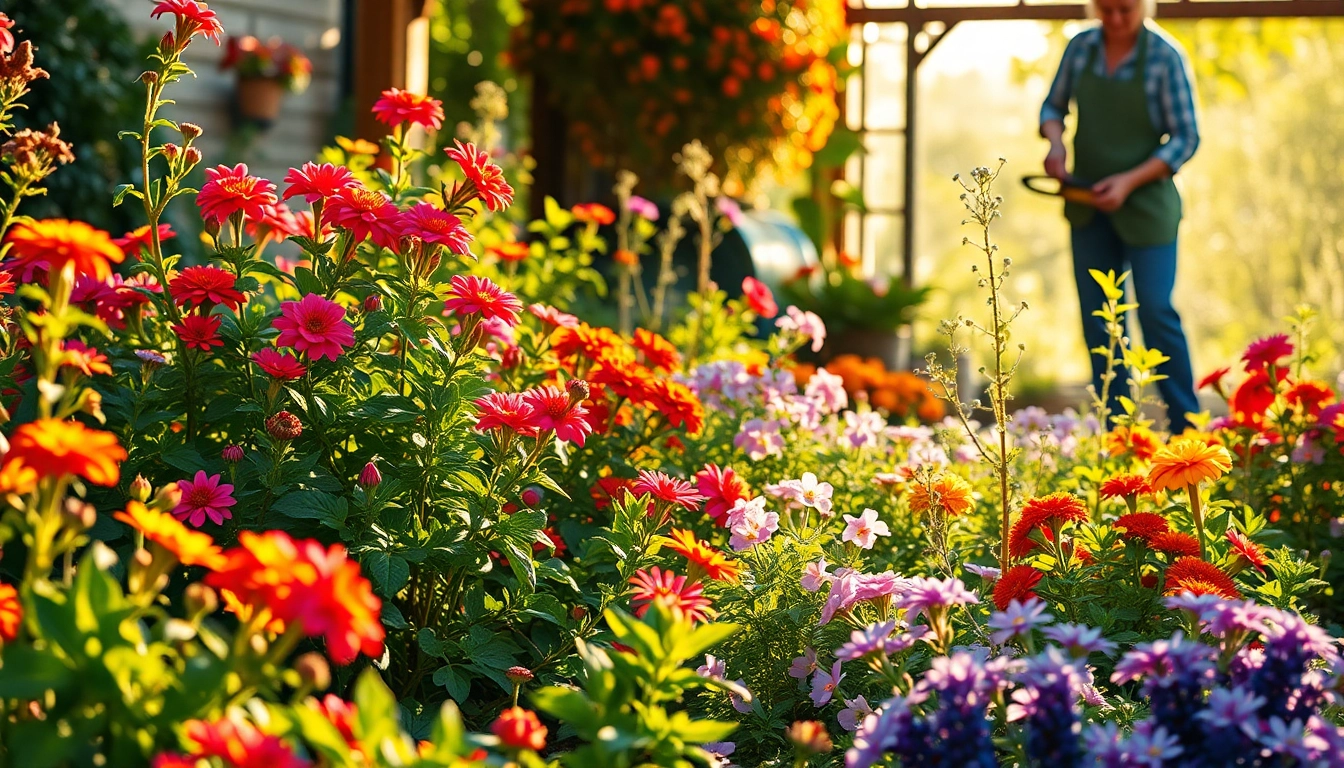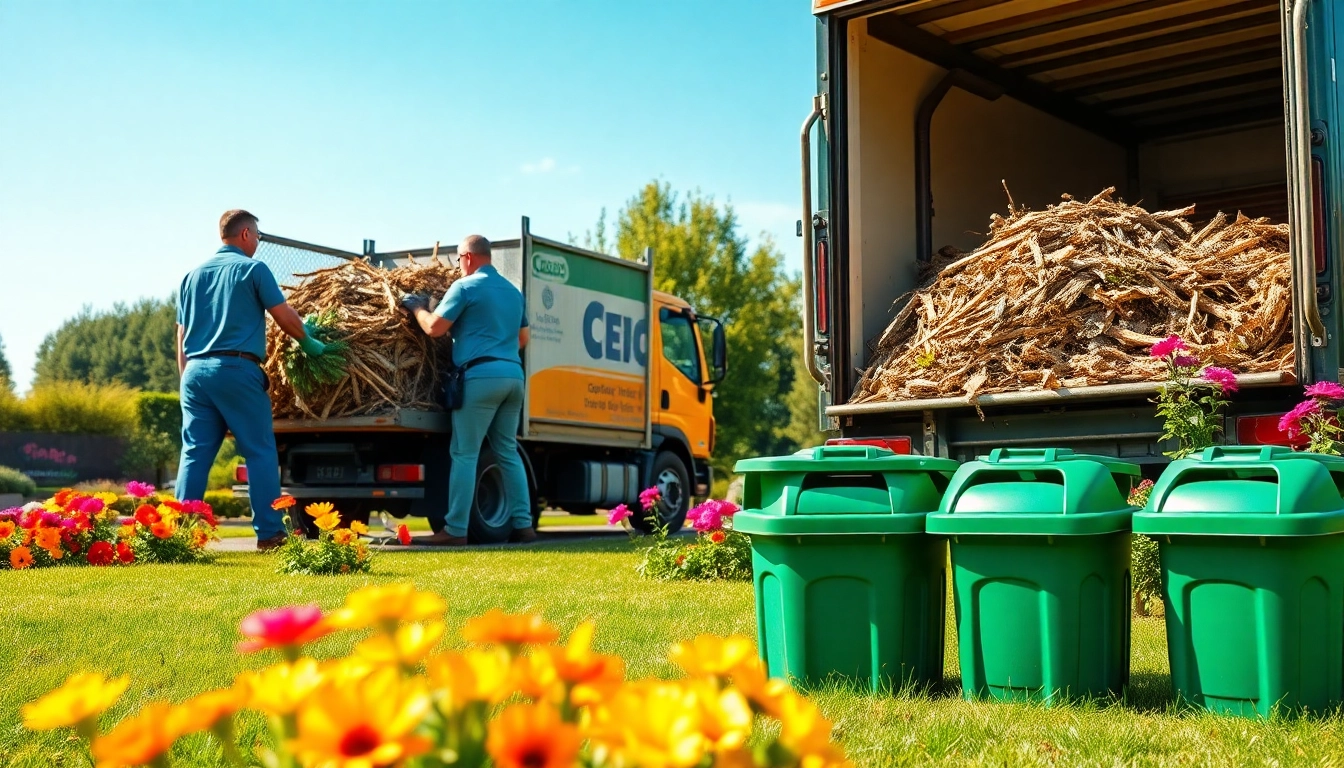
Understanding Garden Maintenance Services
For many homeowners and property managers, a flourishing garden is not just a luxury; it’s a crucial element of property aesthetics. A professional garden maintenance service can make a significant difference in the appearance and health of your outdoor space. Here, we explore various aspects of garden maintenance, the importance of professional care, and how to choose the right services to ensure that your garden thrives throughout the year.
What is a Garden Maintenance Service?
A garden maintenance service encompasses a variety of tasks that ensure gardens and landscapes remain beautiful, healthy, and functional. These services can range from simple lawn care, like mowing and edging, to comprehensive packages that include weeding, pruning, fertilization, pest control, and seasonal planting. In essence, the aim is to create a visually appealing environment while ensuring the health of plants and the balance of the ecosystem within your garden.
Importance of Professional Garden Care
Hiring a professional garden maintenance service can alleviate the stress of maintaining a garden. Experts bring knowledge and experience that can prevent common gardening pitfalls. They understand plant requirements, local pests, and the appropriate use of fertilizers and pesticides. Furthermore, professional gardeners can save homeowners significant time and effort, allowing them to enjoy their outdoor spaces without the burdens of upkeep.
Types of Services Offered
Garden maintenance services can be customized based on individual needs and preferences. Below are some common services offered:
- Lawn Care: Regular mowing, aerating, fertilizing, and weed control.
- Pruning and Trimming: Maintaining the shape and health of plants by removing dead or overgrown branches.
- Planting: Seasonal planting of flowers, shrubs, and trees tailored to specific gardens.
- Pest Control: Identification and treatment of pest problems without harming beneficial insects.
- Fertilization: Applying nutrients based on soil health and plants’ needs.
- Seasonal Cleanup: Removing debris, leaves, and dead plants, ensuring the garden is ready for the next season.
Common Challenges in Garden Maintenance
Dealing with Pests and Diseases
Pests and diseases can wreak havoc on a garden. It’s essential to recognize the signs of trouble early. Common pests such as aphids, spider mites, and caterpillars, can damage plants and hinder their growth. Professional gardeners are skilled in pest identification and can employ integrated pest management (IPM) techniques to control pests safely and effectively.
Seasonal Changes and Their Impact
Gardens are dynamic spaces influenced by changing seasons. Each season presents unique challenges for garden maintenance. For instance, spring is an optimal time for planting but also requires careful weeding. Summer often necessitates increased watering and monitoring for pests, while fall calls for cleaning up and preparing for winter. A knowledgeable garden maintenance service can tailor strategies for each season to ensure plants thrive year-round.
Managing Time and Resources Effectively
Homeowners often struggle to find the time to maintain their gardens, balancing work, family, and social obligations. Professional services streamline this process, allowing for prioritization of tasks based on seasonal needs and property requirements. Moreover, service providers typically utilize advanced tools and methods that improve efficiency and outcomes.
Best Practices for Hiring a Garden Maintenance Service
How to Choose the Right Service Provider
When selecting a garden maintenance service, consider the following:
- Experience: Look for companies with a proven track record and experience handling gardens similar to yours in size and complexity.
- Reviews and Recommendations: Seek out testimonials from previous clients. Websites like Yelp and Thumbtack offer insights into services in your area.
- Range of Services: Choose providers that offer comprehensive services, so you don’t have to hire multiple gardeners for different tasks.
Questions to Ask Before Hiring
Before committing to a service, make sure to ask pertinent questions such as:
- What types of services do you offer?
- How do you determine pricing?
- Do you have insurance and are your workers certified?
- Can you provide references or examples of previous work?
Cost Factors and Budgeting for Services
The cost of garden maintenance services can vary considerably based on factors such as location, the complexity of your garden, and service frequency. On average, homeowners can expect to pay around $150 per visit for basic services. It’s wise to request estimates from multiple providers and compare what each service includes to make an informed decision.
Tools and Techniques for Effective Maintenance
Essential Gardening Tools for Homeowners
While employing a professional service can relieve much of the gardening burden, homeowners may still benefit from having essential tools on hand for minor maintenance jobs. Important tools include:
- Hand Tools: Trowels, pruners, and weeding forks.
- Power Equipment: Lawn mowers, leaf blowers, and hedge trimmers.
- Watering Systems: Irrigation systems or garden hoses with spray attachments.
Innovative Techniques for Garden Care
Innovation in gardening has led to new methods that enhance maintenance efficiency and plant health. Techniques such as companion planting, mulching, and using organic fertilizers can promote healthier plant growth and reduce pests naturally. Embracing these techniques can also minimize long-term costs associated with chemical treatments.
Regular Maintenance Routines
Establishing a regular maintenance routine is crucial for garden health. This includes:
- Weekly mowing and edging of lawns.
- Bi-weekly weeding and pruning.
- Monthly fertilization and pest inspections.
Consistent care not only improves the garden’s appearance but can also increase property value and enhance curb appeal.
Measuring the Success of Your Garden Maintenance
Key Metrics for Evaluation
To assess the effectiveness of garden maintenance, homeowners should track specific metrics, such as:
- Plant health indicators like growth rate and bloom frequency.
- Weed and pest populations over time.
- Visual appeal, including overall aesthetics and variety of plants.
Feedback from Clients and Gardeners
Feedback from gardeners and clients provides valuable insights into service quality and effectiveness. Regular surveys can help service providers understand their strengths and areas for improvement, which can enhance the overall client experience.
Continuous Improvement Strategies
Garden maintenance is an ongoing process that benefits from continuous improvement. Strategies such as adopting new technologies, investing in further staff training, and adjusting schedules based on seasonal feedback can enhance service delivery and garden outcomes.







